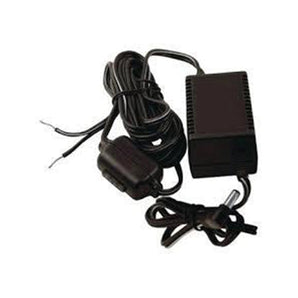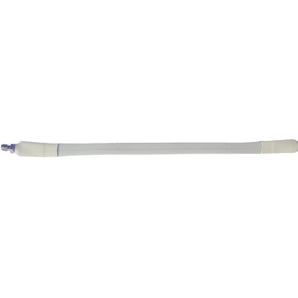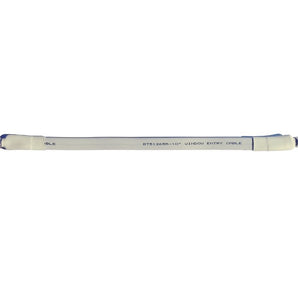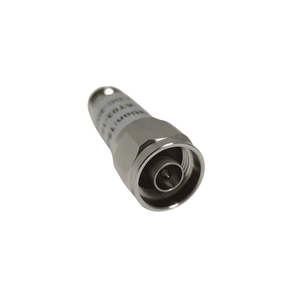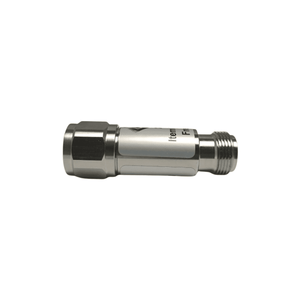What South African Ports Can Learn from US Port Modernisation
Transforming port operations with next-generation connectivity solutions
South Africa's major ports — Durban, Cape Town, and Gqeberha — are vital to our economy, linking us to the world's trade networks. Durban Container Terminal alone handles over 2.9 million TEUs (twenty-foot equivalent units) annually, making it the busiest container port in Africa. Yet, ageing infrastructure, spotty connectivity, and outdated manual processes often slow cargo movement and drive up costs.
Across the ocean, US ports are transforming their operations with Private 5G networks and Distributed Antenna Systems (DAS), boosting efficiency, safety, and profitability. These innovations offer valuable lessons that South African ports can adopt today.
The Connectivity Challenge in Ports
Ports are complex, vast environments full of steel cranes, stacked containers, and moving vehicles - all of which interfere with wireless signals. Traditional solutions like Wi-Fi and fibre networks struggle to keep up:
- Mobility issues: Wi-Fi struggles with constant movement of vehicles and equipment.
- Limited coverage: Fibre installation across large outdoor spaces is expensive and disruptive.
- Reliability problems: Steel infrastructure and competing wireless signals cause interference and downtime.
This is exactly where Private 5G, combined with Hybrid DAS or Active DAS, offers a game-changing solution.
4 Key Lessons from US Private 5G Ports
1 Automating Cargo Handling
US ports deploy Autonomous Guided Vehicles (AGVs) and robotics on Private 5G networks to move containers faster. In South Africa, pairing these with Industrial Signal Boosting solutions can reduce bottlenecks in busy container yards.
Example: The Port of Los Angeles has piloted 5G-powered automation projects to improve container flow and reduce congestion.
2 Improving Worker Safety
AI-powered wearables and IoT sensors monitor worker locations, fatigue, and hazards in real time. When combined with Enterprise Wireless Solutions and Business Signal Solutions, this tech can enhance safety compliance at our ports.
3 Cutting Infrastructure Costs
Installing fibre costs up to R500/m and is vulnerable to accidental damage. Using Hybrid DAS solutions can deliver reliable Wi-Fi to malls, factories, and port warehouses — without constant trenching or repairs.
4 Integrating with Existing Networks
US ports run Private 5G alongside Cell Phone Signal Boosters for vehicles, offices, and warehouses. South African ports can similarly benefit by combining Vehicle Signal Boosters and LTE Signal Boosters with Private 5G to ensure seamless coverage.

Private 5G networks enable seamless connectivity across port operations
How Bolton Technical Helps South African Ports
At Bolton Technical, we deliver Zinwave-powered Distributed Antenna System solutions that integrate Private 5G, Business WiFi Systems, and cell signal boosters into a single, unified network. From port offices to container yards, we cover every connectivity need.
Our expertise includes:
Office & Manufacturing
Office Signal Booster and Signal Booster for Manufacturing installations
Outdoor Solutions
Outdoor WiFi Solutions and Long-Range WiFi for Outdoor Areas
Business WiFi
WiFi Installations for Business, including Hotel WiFi Installation Services for port accommodation facilities
Industrial Connectivity
Industrial Routers and Cellular Routers for mission-critical connectivity
Future Outlook: Private 5G and South African Ports Over the Next 5 Years
The rollout of Private 5G in South Africa's ports promises to revolutionise logistics and operations. Expect:
- Expanded automation and remote-controlled vehicles
- Enhanced real-time data analytics improving cargo tracking
- Increased integration of AI for predictive maintenance and safety
- Seamless connectivity supporting smart port infrastructure and IoT devices
As adoption grows, South African ports could leapfrog traditional constraints and compete globally with next-gen digital infrastructure.

Zinwave DAS solutions provide comprehensive coverage for port environments
FAQ: Connectivity Tech for Ports
What is a Mesh Network?
A mesh network uses multiple nodes to create a seamless, self-healing wireless network that expands coverage without a single point of failure — ideal for complex port environments.
How do WiFi Extenders Work?
WiFi extenders pick up existing WiFi signals and rebroadcast them to cover dead zones, improving coverage in areas where signal strength is weak or blocked.
The Bottom Line
Private 5G is more than just a network upgrade — it's the foundation for safer, faster, and more profitable port operations. By combining Hybrid DAS with Enterprise Signal Solutions, South African ports can evolve into world-class logistics hubs.
Ready to transform your port's connectivity?
Talk to a Signal Expert today about our Zinwave-powered solutions
Contact Our Experts



